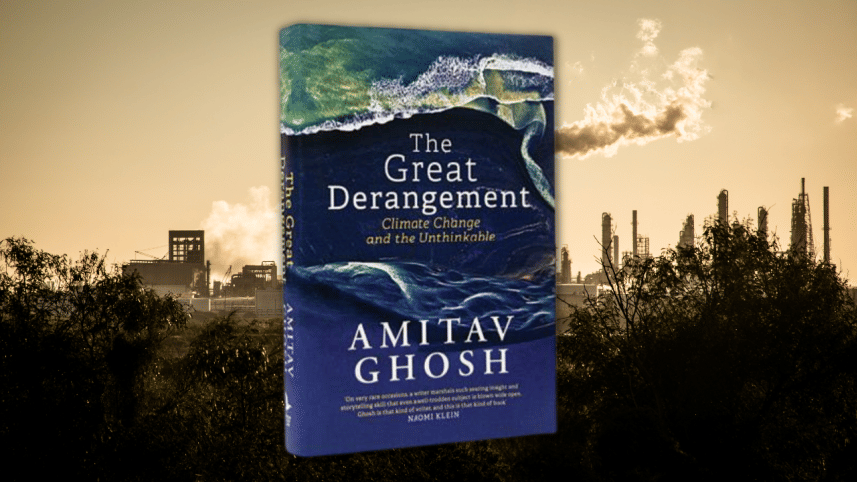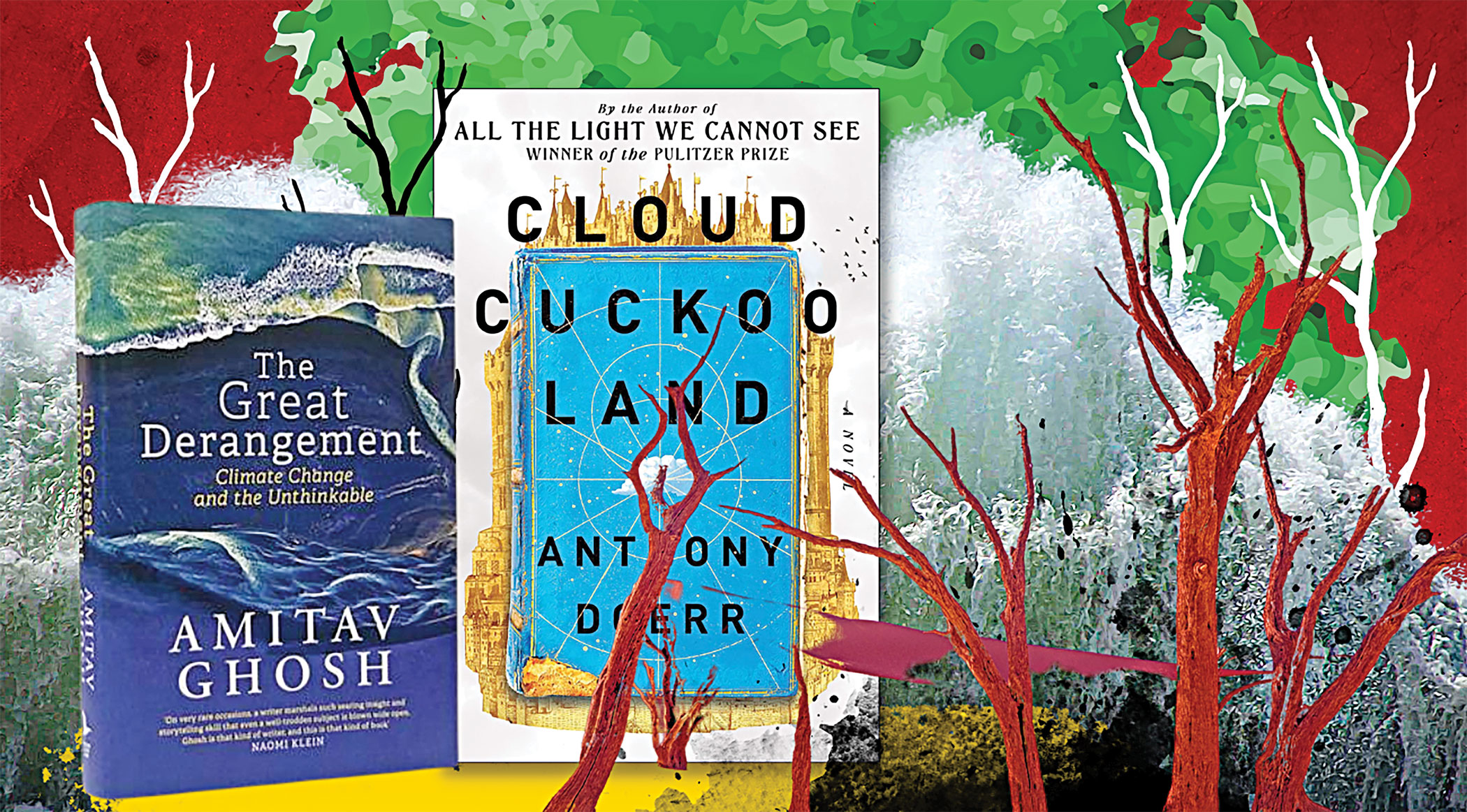The absence of climate change in fiction and other great derangements

I was first introduced to Amitav Ghosh while gulping down The Hungry Tide as a freshman Environmental Science student. In that book, Ghosh navigates the Indian side of the Sundarbans, its politics, its histories, and its people. Ghosh initiated my first brush with a fictional conservation scientist working to protect dolphins in the Sundarbans, kicking off a lifelong love affair with the world of conservation. That was sometime in the beginning of the decade.
I picked up Ghosh again this year; a much older release and this time a work of nonfiction—The Great Derangement: Climate Change and the Unthinkable—only to be hit with another dose of reality and inspiration. While The Hungry Tide made me go looking for wildlife heroes, the latter awoke me to climate change in literary fiction. The book explores our inability at the level of literature, history, and politics to grasp the scale and violence of climate change.
In the part titled "Stories", Ghosh critiques the limitations of the 'literary novel' which often aims to highlight personal adventures. The contemporary novel uses narrow scales of time and space and rarely exceeds more than a human lifespan, failing to factor in climate and the constant change taking place on the sidelines of character development. In "Histories", Ghosh develops a fascinating "genealogy of the carbon economy" extending research in post-colonialism, environmental justice, and modernity. "Politics" laments the lack of collective action, the narrow bandwidth of political concern, and parallels the enduring ideology of capitalist growth with the unsettlingly similar literary impulse to pursue the next avant-garde.
Because it is a work of non-fiction, Ghosh takes liberty with the writing, swerving sometimes towards academic jargon and failing to keep the text approachable. But he also sparkles with insight, especially during his anguish over the absence of climate change in literary fiction.
He questions why climate change casts a much smaller shadow on literature than it does on the world. If seriousness and relevance were the precursor to great works of literature, then writers should jump on the bandwagon. In this time and space we are living the impacts of climate change, yet if one were to pick up a work of contemporary literature dating from the past decade, they would be hard pressed to find relevant references to a changing world. I know I have struggled to find one—one which speaks of climate change outside the nuances of academia. Where are the stories of the Sundarbans, which I have seen change in the span of a few years? Where are the stories of those constantly battling the impacts of nature that is unleashing its fury? Academic journals, news articles, feature stories and all other non-fiction accounts of climate change are fertiliser for stories, for literary fiction. Yet the narratives remain sparse.
Cyclones, tornadoes, wildfires, degrading habitats and dying animals seem to have been relegated to the confines of academic journals, but that fails to touch the heart, invoke any imagination. Ghosh is right: "The great, irreplaceable potentiality of fiction is that it makes possible the imagining of possibilities"; storytelling adds life to even the most deadbeat of subjects. It was author Ben Okri who said it best when he said, "The fact of storytelling hints at a fundamental human unease, hints at human imperfection. Where there is perfection, there is no story to tell."
Abida Rahman Chowdhury is a member of the Op-Ed and Editorial team at The Daily Star, with a background in conservation and environmental science.




 For all latest news, follow The Daily Star's Google News channel.
For all latest news, follow The Daily Star's Google News channel. 

Comments